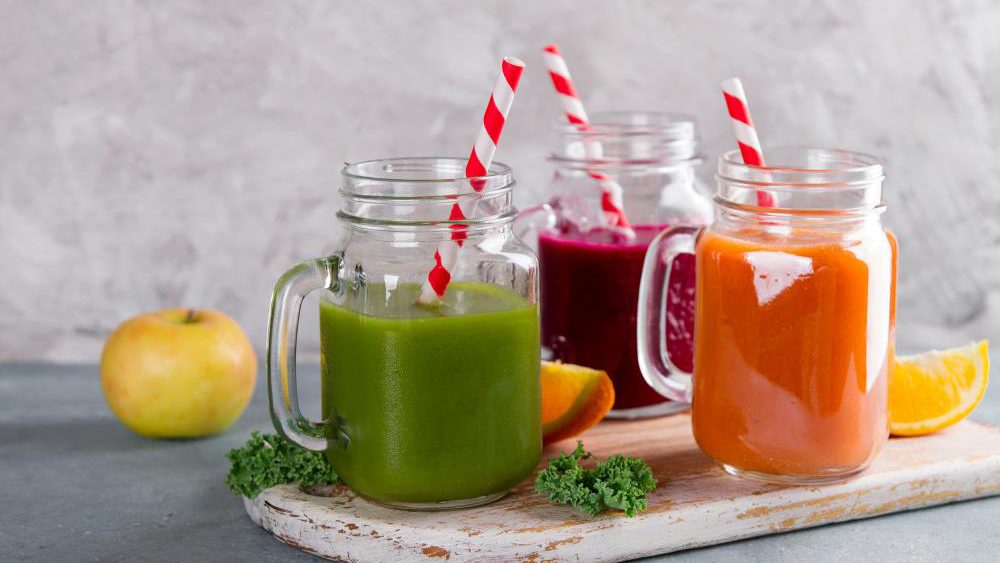
Advertisement
Vegetable juice is not an uncommon thing. Carrots, cucumbers, broccoli, and celery are just a few of the many vegetables that are used to make potent health drinks. But recently, another leafy green has made it to the list of juice-worthy vegetables, and this time, it’s a rather unusual one: cabbage. While it doesn’t sound as appetizing as other vegetable juices, cabbage juice is just as good at providing a plethora of health benefits.
Pick medium-sized cabbages for juicing
Most vegetables are great candidates for juicing because they contain lots of nutrients and also yield lots of juices. While some don’t taste good on their own, other vegetables complement and even improve each others’ taste when mixed together. But when it comes to cabbage, surprisingly, this can be remedied easily by picking a medium-sized cabbage instead of a large one. Medium-sized cabbages actually taste better and make the juicing process much easier.
Cabbage boasts huge amounts of dietary fiber, omega-6 fatty acids, and vitamins C, K, B6, and folate. Cabbage doesn’t contain much cholesterol or saturated fat, but has a decent amount of minerals like potassium, phosphorus, and calcium. Cabbage only has three grams of total carbohydrates, two grams of sugar, and one gram of protein. While other vegetables can arguably offer more than these, cabbage makes up for its shortcomings by providing impactful health benefits.
9 Health benefits of cabbage juice
Drinking cabbage juice may not be an appealing idea. Cabbage contains a lot of sulfur compounds, which can cause it to emit an unpleasant odor akin to spoiled egg when it’s no longer fresh or when it’s overcooked. However, the following health benefits make ignoring the unpleasant smell of cabbage juice absolutely worth it.
- Cabbage juice prevents cancer — Cabbage is a rich source of cancer-fighting chemicals known as isothiocyanates and sulforaphane. Isothiocyanates interfere with cancer-related pathways while sulforaphane can block substances that cause cancer.
- Cabbage juice heals ulcers — Cabbage juice contains glutamine, which helps heal peptic ulcers by promoting the growth of cells in the stomach. Glutamine also helps peptic ulcers repair themselves.
- Cabbage juice helps with weight management — Cabbage juice helps convert sugars and carbohydrates into energy, ensuring that they don’t get turned into stored fats. By aiding in this conversion process, cabbage juice indirectly promotes the burning of stored fats as fuel, which helps people lose weight.
- Cabbage juice supports heart health — Cabbage juice is low in cholesterol, but high in omega-6 fatty acids, which are good for the heart. Omega-6 fatty acids reduce blood cholesterol and the risk of heart attack.
- Cabbage juice reduces anemia — Cabbage juice contains folic acid, a B-vitamin that helps with the generation of red blood cells. Cabbage also has lots of vitamin C, which aids in iron absorption.
- Cabbage juice promotes skin health — Cabbage juice provides a decent amount of alpha and beta carotene and the retinol equivalent of vitamin A. These compounds are antioxidants that protect skin cells from harmful free radicals. Free radicals are one of the main causes of premature skin aging and skin damage.
- Cabbage juice prevents hair loss — The sulfur compounds present in cabbage not only strengthen hair strands, they also prevent hair loss and breakage.
- Cabbage juice lowers bad cholesterol levels — High levels of low-density lipoprotein (LDL) are associated with an increased risk of heart disease. Fortunately, cabbage juice can reduce LDL cholesterol in the blood.
- Cabbage juice fights inflammation — Cabbage juice is a source of selenium, a mineral that also functions as an anti-inflammatory agent. Cabbage juice helps alleviate respiratory issues, cataracts, and allergies, among others.
Cabbage juice is a healthy drink that offers a lot of benefits. It also doesn’t cost much to make and is easy to prepare. If you’re willing to try cabbage juice, there are some side effects that you should be aware of. While cabbage can improve the digestive system, it may also cause excess gas and even diarrhea for those with sensitive stomachs. People who are taking blood-thinners are also advised not to drink cabbage juice as it may interfere with that particular medication. People with hypothyroidism should also avoid drinking cabbage juice as vegetables with sulfur compounds are generally not good for them. Lastly, do not drink cabbage juice if you’re pregnant or nursing to prevent your child from developing colic or digestion-related problems. Otherwise, cabbage juice is a vegetable juice that’s worth trying.
Sources include:
Advertisements







